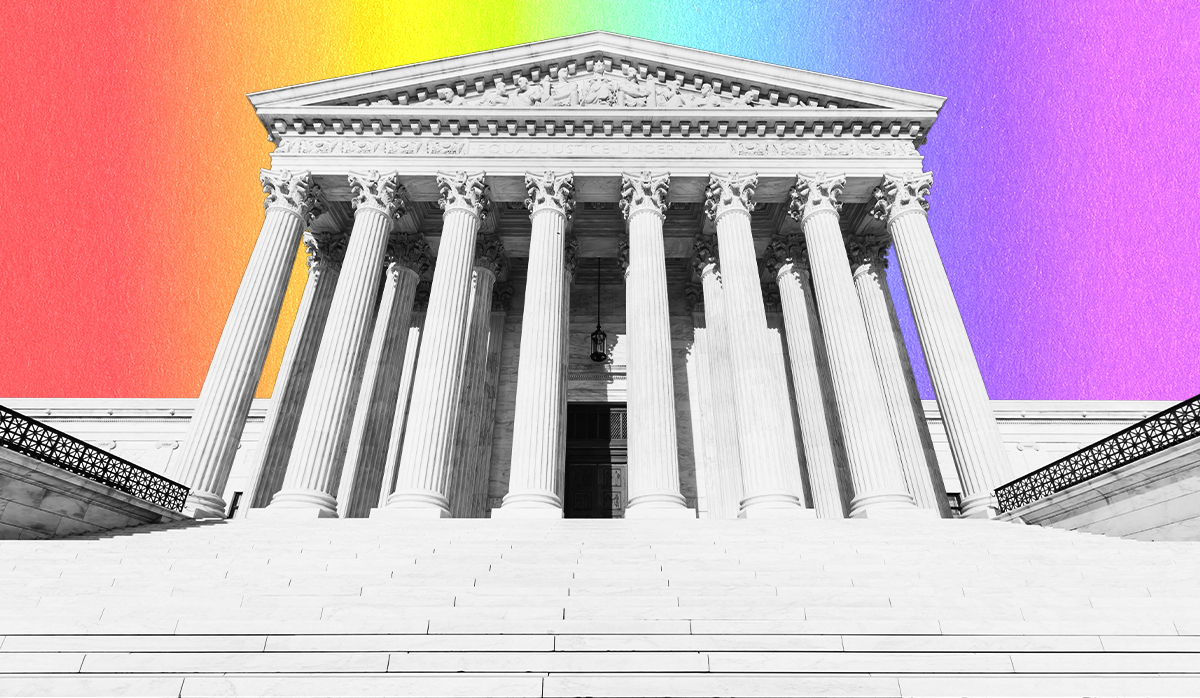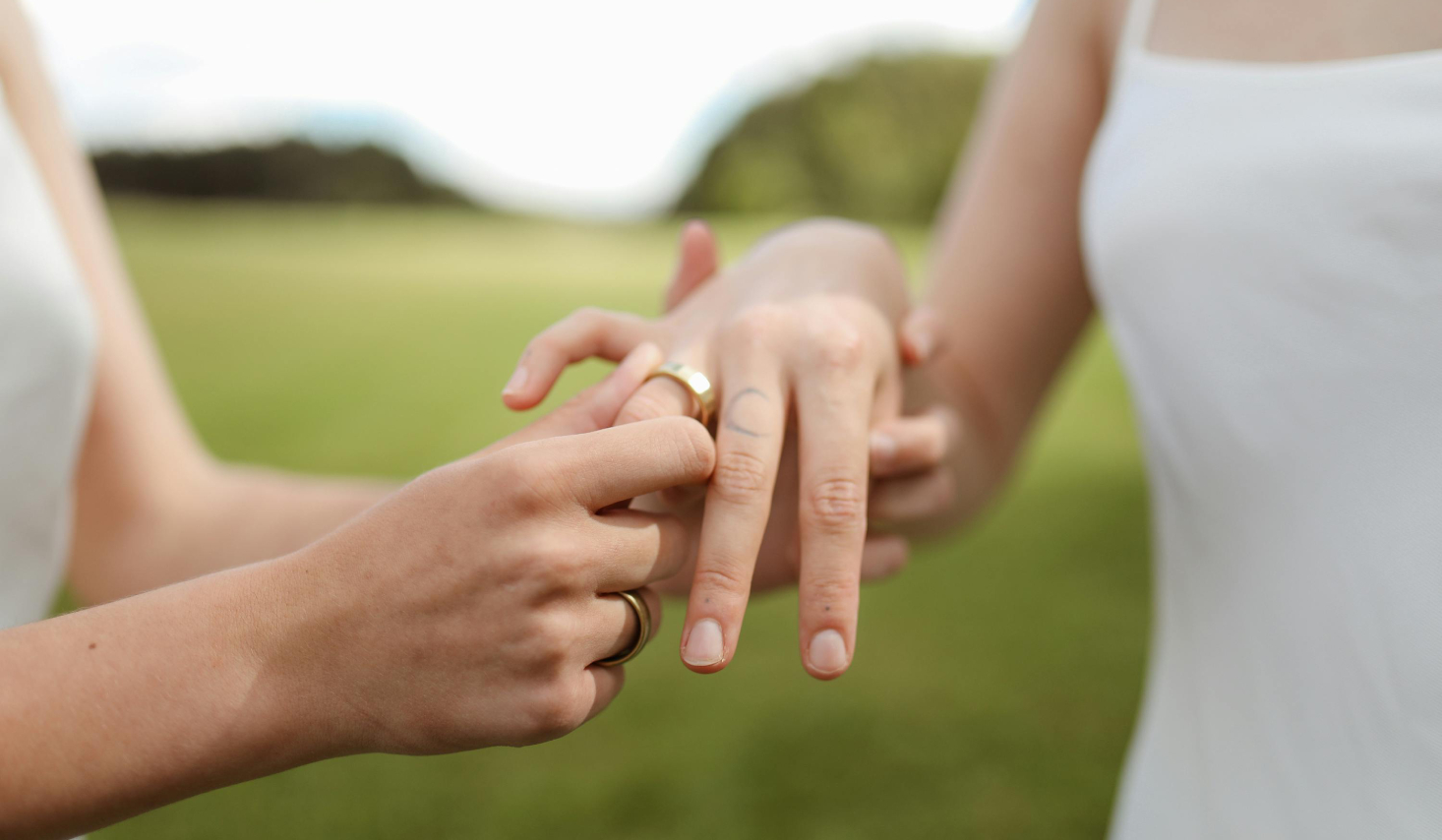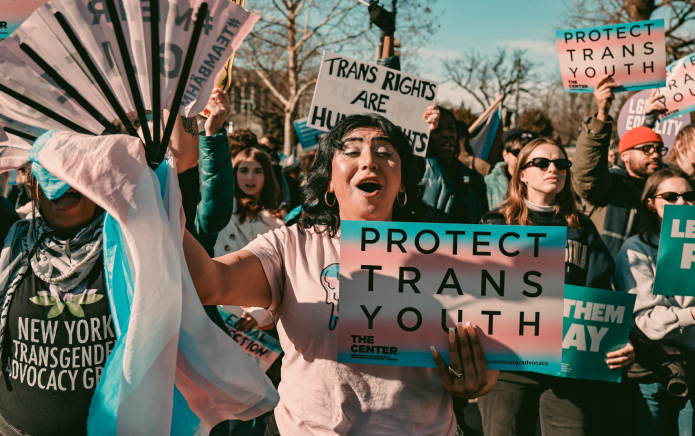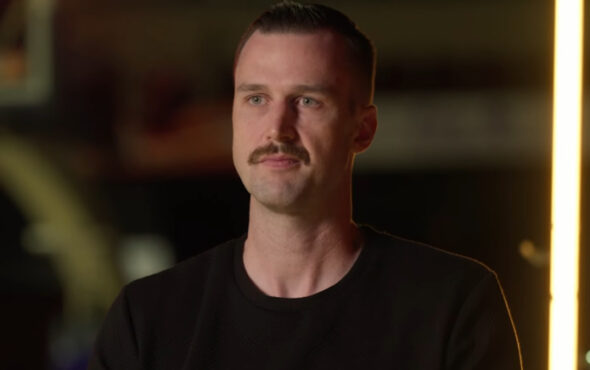
For decades, LGBTQIA+ communities worldwide have fought for the same rights and liberties as their heterosexual peers. While true equality is still a long way off, especially in today’s political climate, we have secured significant victories — including marriage equality. In the US, after two decades of campaigning, same-sex marriage was finally legalised across all 50 states following the Supreme Court’s 5-4 ruling in the landmark Obergefell v. Hodges case.
Since that historic day, LGBTQIA+ people in the US have fully embraced their right to marry. According to data from the Williams Institute, more than 591,000 same-sex couples have tied the knot since Obergefell, with married couples making up the majority of partnered same-sex households since 2016. The research also found that same-sex marriages have boosted the country’s economy, with wedding spending generating an estimated $432.2 million in state and local sales tax revenue.
While marriage equality has allowed queer people to fulfil their dreams of lifelong commitment — and proven to boost the economy — it’s now being targeted by, you guessed it, far-right political figures and conservative bigots. In this explainer, we break down everything you need to know about the case urging the Supreme Court to overturn same-sex marriage, and what experts are saying.
Who’s formally asking the US Supreme Court to overturn same sex marriage?
Kim Davis is the individual behind the recent petition. But before we get into her anti-LGBTQIA+ request, here’s some context: in June 2015, shortly after the Obergefell v. Hodges ruling, the former Kentucky county clerk made headlines when she refused to issue marriage licenses to same-sex couples, citing her religious beliefs.
In one video that went viral at the time, Davis is seen in a tense exchange with a queer couple seeking to exercise their legal right to marry, telling them: “We are not issuing marriage licenses today.” When asked whose authority she was acting under, Davis replied: “Under God’s authority.”
Despite being ordered by the Court to issue marriage licenses to same-sex couples, Davis refused, leading to her jailing for “contempt of court.” “The court cannot condone the wilful disobedience of its lawfully issued order. If you give people the opportunity to choose which orders they follow, that’s what potentially causes problems,” Judge Bunning said at the time, per The New York Times.
Now, nearly 10 years later, Davis has brought her grievances over same-sex marriage to the Supreme Court once again. In July, she filed a petition for writ of certiorari, appealing two past verdicts that ordered her to pay $100,000 to one of the same-sex couples she denied a marriage license to, and $250,000 in attorney fees. The filing also urged the Court to overturn the landmark Obergefell v. Hodges ruling, calling it “grounded entirely on the legal fiction of substantive due process.” Davis further claimed that the 2015 decision forced her to choose “between her religious beliefs and her job.”

When will the US Supreme Court make a decision on whether it will hear the case?
As of now, no date has been set for when the US Supreme Court will make its decision. According to the Court’s website, the case will be considered by the nine justices during their 29 September conference, with a decision potentially coming in October. However, it could take longer, as the Court sometimes “re-lists particularly controversial cases,” meaning they may be discussed at multiple conferences, per Forbes.
What are legal experts saying about the petition and the likelihood of same-sex marriage being overturned?
Many legal experts doubt that the US Supreme Court will (1) hear Kim Davis’ case or (2) overturn Obergefell v. Hodges.
In an interview with Newsweek, Northeastern University law professor Daniel Urman said it was “very unlikely” the Court would take on the case, despite the current conservative majority on the bench.
“There’s a chance that a conservative majority could use the case to expand the rights of religious objectors to same-sex marriage. But that’s not the same as overturning the right itself, and I don’t see a majority of the Court ready to do that,” Urman told the outlet.
“Culturally, same-sex marriage has become embedded in American life, and it is still popular in public opinion polls.”
Carl Esbeck, a religious liberty expert at the University of Missouri School of Law, and Geoffrey R. Stone, a law professor at the University of Chicago, expressed similar views in statements to USA Today.
“It would be a useless act to overturn Obergefell. The politics have simly moved on from same-sex marriage, even for conservative religious people,” Esbeck said.
Stone noted that while some Supreme Court justices may disagree with the Obergefell v. Hodges ruling, they are unlikely to overturn it given the public’s support for marriage equality and a desire to “avoid the appearance of interpreting the Constitution in a manner that conforms to their own personal views.” He added: “Even some of the conservative justices might not vote to overrule Obergefell.”
Lastly, ABC News legal analyst Sarah Isgur stated that “there is no world in which the Court takes the case as a straight gay marriage case.”
“Justices Brett Kavanaugh and Amy Coney Barrett seem wildly uninterested. Maybe Justice Neil Gorsuch, too,” she continued. “It would have to come up as a lower court holding that Obergefell binds judges to accept some other kind of non-traditional marital arrangement.”
What will happen if same-sex marriage is overturned? Is there current legislation to combat the decision?
If marriage equality were overturned, the US would likely revert to the pre-Obergefell v. Hodges system, leaving the decision to each state. However, existing same-sex couples would still be protected under a 2022 law signed by former US President Joe Biden.
On 13 December, he enacted the Respect for Marriage Act, which requires the federal government — and all US states and territories — to recognise same-sex and interracial marriages performed in other states. For example, if a gay couple from Arkansas — where marriage equality would be banned if Obergefell were overturned — married in California, Arkansas would still be required to honour their union.
Is Kim Davis the only one targeting marriage equality through legal means?
No, Kim Davis isn’t the only conservative figure targeting same-sex marriage. According to a February report from NBC News, lawmakers in at least nine states — including Michigan, Idaho, Montana, North Dakota, and South Dakota — have sought to reverse the landmark Obergefell v. Hodges ruling. Meanwhile, lawmakers in Texas, Missouri, Oklahoma, and Tennessee have introduced proposals to create a new category of marriage, called a “covenant marriage,” which would be reserved for one man and one woman.



